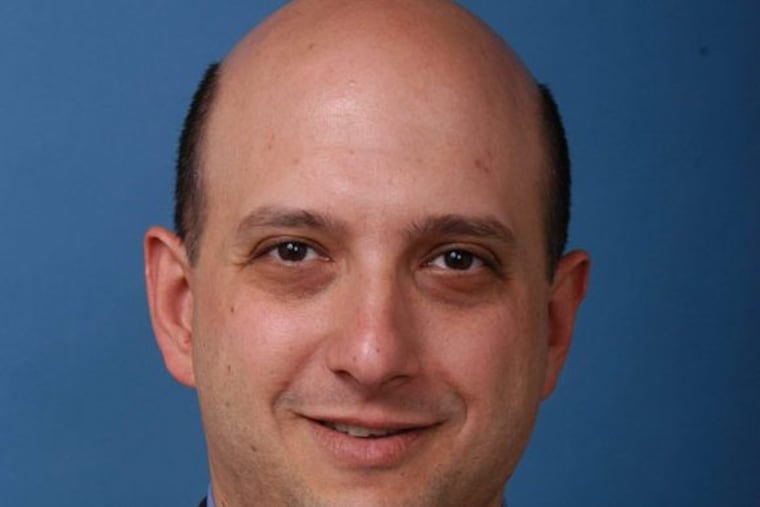Vereit to pay Vanguard $90 million for Schorsch real estate firm losses
"A multiyear fraud and attempted cover-up."

Vereit Inc., successor to the former real estate investment company American Realty Capital Partners Inc. set up by Nicholas Schorsch, has agreed to pay Malvern-based Vanguard Group investment funds $90 million to settle a 2016 lawsuit.
That suit alleges that Schorsch, the Jenkintown scrap-metal heir, and his executives stole nearly $1 billion from their own company, causing a costly decline in the value of Vanguard's investments.
Vanguard sued after Schorsch admitted, in public disclosures filed with the Securities and Exchange Commission in 2014 and 2015, that company officials had exaggerated profits. Under terms of the settlement, Vereit doesn't admit it did anything wrong, and Vanguard agrees to dismiss its claims against Vereit, Schorsch, and other defendants.
Vereit can still sue Schorsch, its insurers, and others to try to get back the $90 million. The company and its former officers still face a series of additional investor lawsuits.
Michael J. Bartolotta, executive vice president and chief financial officer at Vereit, signed off on the Vanguard agreement. Schorsch, once described admiringly by his friend and fellow board member Ed Rendell, a former Pennsylvania Governor and Democratic National Committee chairman, as a "riverboat gambler," left the company after the fraud was disclosed.
"We're not going to comment on the settlement," said Vanguard spokeswoman Carolyn Wegemann.
Vanguard in its suit alleged "a multiyear fraud and attempted cover-up" when Schorsch was chief executive of the company, after it admitted sending out seven quarters of false earnings reports to shareholders and the Securities and Exchange Commission. Two Schorsch lieutenants were later convicted of fraud; Schorsch has not been charged.
Vanguard's 150-page complaint alleged that fraud "was orchestrated by the top executives" at Schorsch's company, one of the nation's largest real estate investment trusts (REITs), with more than $30 billion of real estate at its height in the early 2010s. Other Schorsch-backed companies employed thousands of brokers who pushed Schorsch-backed real estate stocks and closed-end funds.
Last year, Pennsylvania state securities officials levied their highest-ever fines against a brokerage, Newbridge Securities of Boca Raton, Fla., and a broker, Austin Dutton of Doylestown, for selling risky real estate funds set up by Schorsch that were "unsuitable" to Philadelphia police officers and other city workers for their retirement funds.
Schorsch bought thousands of commercial properties, from blocks of stores whose mortgages had been controlled by GE Capital to Red Lobster restaurants and other chain eateries. Schorsch and his supporters said Schorsch had developed a new way to invest in real estate, sharing future profits rather than up-front fees.
But "the true primary purpose in Schorsch's buying spree" was "to rob from shareholders and give to himself and his friends," according to Vanguard's suit, filed by lawyer Jonathan Sherman at Washington-based Boies Schiller & Flexner LLP and an Arizona law firm. Vereit failed in its efforts to have the suit dismissed or relocated to New York.
According to the suit, Schorsch "transferred hundreds of millions of dollars to entities controlled by him and by other senior insiders" in 2013 and 2014. According to Vanguard, Schorsch and his helpers reported sharply rising earnings through those years, convincing Vanguard and other professional investors to buy the stock, after certifying the company had solid financial controls and honest financial reporting.
But in fact, "from the very beginning of its history as a public company, ARCP lacked an adequate system of controls over its financial reporting," the suit said. "ARCP's financial statements were riddled with errors that served not only to mask its faltering performance but to make that performance appear exceptional." For example, the company included revenues from investments "that did not belong to ARCP at all."
It was "accounting fraud," Vanguard had alleged, that "enabled Schorsch and other senior ARCP insiders to reap hundreds of millions of dollars in improper transaction fees, commissions, and compensation." The "scheme" boosted the bonus pool for Schorsch and other insiders "by nearly $100 million in excess of any authorization."
The fraud became public on Oct. 29, 2014, when the company made public its own audit committee report admitting that it had "intentionally" misreported and failed to correct income calculations, that its internal financial reporting controls were defective, and that two of Schorsch's top aides were leaving. The stock plunged, eventually losing more than half its value.